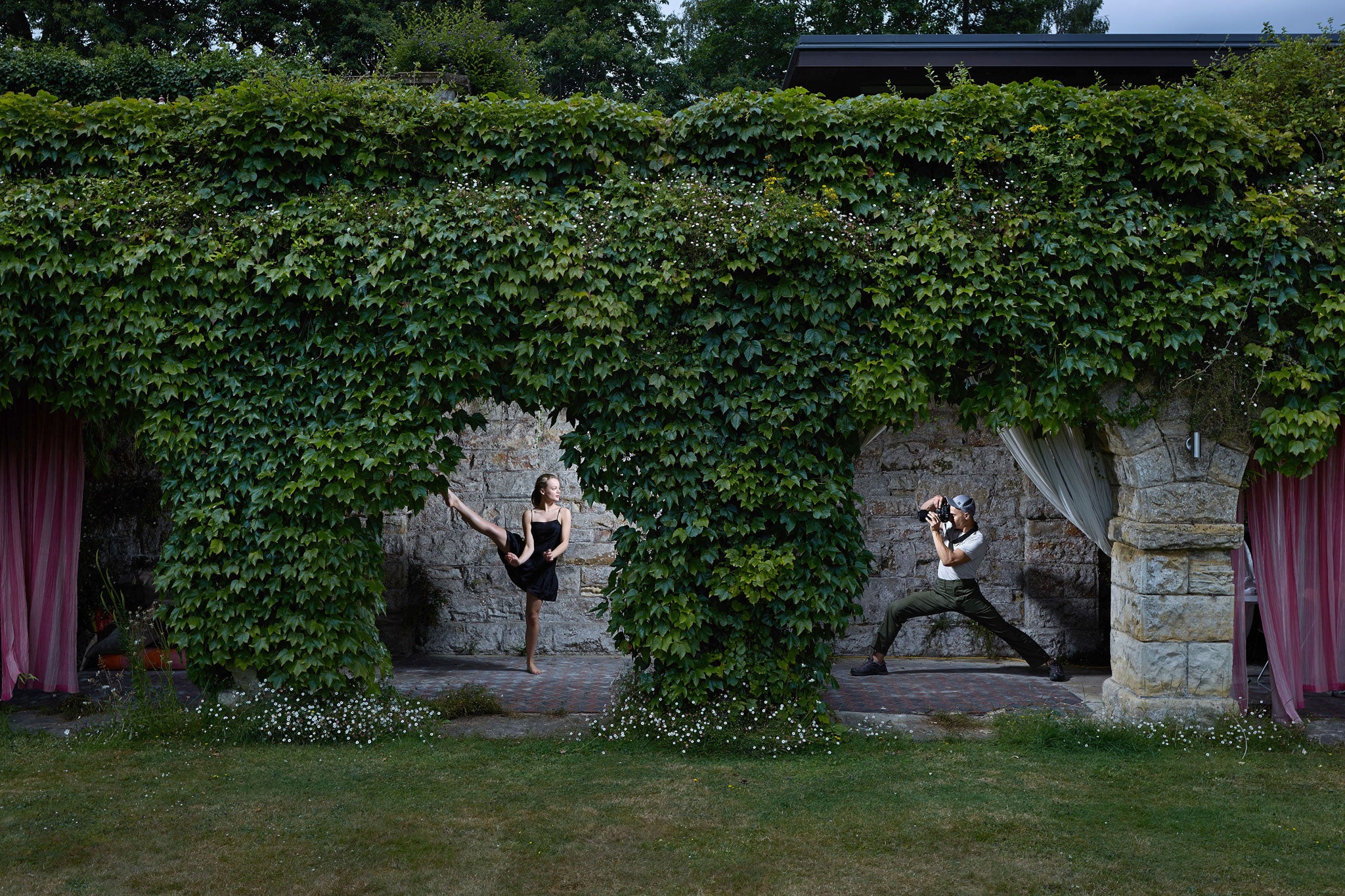Henryk Hetflaisz, photographer: 'Portraiture is about engaging in a one-on-one conversation'

Visiting photographer Henryk Hetflaisz in Capel Manor, the estate near Sissinghurst in Kent where he lives and works with Remy Blumenfeld, his long-term partner, is an idyllic experience. Many of his photographs are taken in the beautiful grounds that transform themselves into his outdoor studio complete with extensive views and lush foliage.
Remy Blumenfeld is the grandson of photographer Erwin Blumenfeld and the son of sculptor Helaine Blumenfeld and has encouraged Hetflaisz to explore both portraiture and pure forms of photography. I mention this heritage, as it is impossible to separate their world from the work. Hetflaisz was recently commissioned by the commune of Pietrasanta, Italy (where Helaine Blumenfeld has a studio) to do a series of the "artisans" in its artists' studios.
Homo Faber (Working Man) was shown first in the Piazza del Duomo, Pietrasanta, and will soon be displayed in New York. The exhibition will form a fascinating insight into how the enablers in marble studios and foundries work.
There is no doubt when looking at these works that the people are engrossed in what they are doing, and that Hetflaisz, as the photographer, has enabled them to relax into the moment. "Portraiture is about engaging in a one-on-one conversation. It happens naturally and gradually but at some point I know and the person knows that it's fine to take the picture. We're just both ready."
Kent is a long way from Slawno, the small town in northern Poland where Hetflaisz was born in 1978. Growing up in a country where people could not talk freely was formative to the direction to which he was to take as an artist. "Faces were my preoccupation from early on – because people didn't talk to me, I had to learn to read people's thoughts. I had to learn to really be attentive, pay attention to what's going on in their faces because I couldn't trust their words."
Recently, Hetflaisz engaged dancer Sarah Cattrall and, working at night in the garden, experimented in capturing movement using "traditional methodology" with no digital trickery to create a series of seemingly abstract photographs of beauty and mystery.
He does not distance himself from his more traditional work, "the project with the artists in their studios was a huge learning curve. I can't underestimate it. I learned so much in an artistic sense, not as a photographer."
He credits his sources as "Japanese dance photographers, but it really comes from [Eadweard] Muybridge, it comes from the very beginning of trying to capture movement, and I think many photographers grapple with movement."
Ultimately, these abstractions are removed from the model, more so than in Muybridge's serial works. As Hetflaisz says, "My tool is light. I realised that to go under the skin of things I had to animate light. The dance had to be made of light, not reflected light. It had to be life's source, because ultimately we are all light transformed."
Henryk Hetflaisz's Homo Faber will be showing at the Italian Cultural Institute, New York (www.iicnewyork.esteri.it) in the autumn
Join our commenting forum
Join thought-provoking conversations, follow other Independent readers and see their replies
Comments
Bookmark popover
Removed from bookmarks